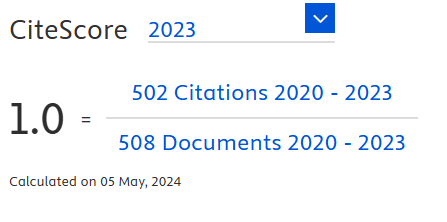CONSTRAINTS FACED BY FARMERS IN ADOPTION OF CLIMATE RESILIENT TECHNOLOGIES
DOI:
https://doi.org/10.18006/2021.9(Spl-3-NRMCSSA_2021).S364.S367Keywords:
Climate resilient technologies, NICRA, Impact on farmers, Andhra PradeshAbstract
National Innovations on Climate Resilient Agriculture (NICRA) project was launched by ICAR in 2011 to develop climate-resilient agriculture technologies through strategic research. It demonstrates and reinforced to accept better practices and wide-ranging technologies for mitigating climate risk to make farming as a profitable business. The current study was carried out in the Anantapur district of Andhra Pradesh, India. The sample consists of 60 farmers as beneficiaries from NICRA villages and 60 farmers as nonbeneficiaries from non-NICRA villages were selected randomly. The ex-post facto research design was used in the study. The constraints faced by the farmers for adoption of climate resilient technologies were lack of sufficient rainfall, lack of owned resources, lack of short duration and drought tolerant crop varieties, lack of knowledge about climate resilient practices, and inadequate financial support. The key suggestions given to the respondents for implementation of climate resilient technologies are the provision of technical guidance and information should be delivered on regular basis, training programs should be conducted about climate resilient practices, financial assistance should be rendered for water and soil conservation and need based technology demonstrations should be given.
References
Archana T (2017) A study on adaptive capacity and technologies adopted by farmers for climate resilient agriculture in drought prone areas. Doctorate thesis submitted to the Professor Jayashankar Telangana State Agricultural University, Hyderadbad, India.
Charitha VG (2017) Impact of national innovations on climate resilient agriculture (NICRA) on the rural livelihood security of farmers of chikkaballapura district. M. Sc. (Agri.) thesis submitted to the University of Agricultural Sciences, Bangalore, India.
Dupdal R, Patil BL (2019) Constraints experienced and suggestions by farming community in adaptation to climate change in Karnataka: An Economic Analysis. International Journal of Current Microbiology and Applied Sciences 8(02): 376-383.
IPCC (2007) Summary for policymakers. In: Parry ML, Canziani OF, Palutikof JP, van der Linden PJ, Hanson CE (Eds.) Climate change (2007): Impacts, adaptation and vulnerability. Contribution of working group II to the fourth assessment report of the Intergovernmental Panel on Climate Change, Cambridge University Press, Cambridge , UK, Pp. 7-22.
Jasna VK (2015) Impact of climate resilient technologies in rainfed agroecosystem. M. Sc. (Agri.) Thesis (Unpublished) submitted to the Division of Agricultural Extension, IARI, New Delhi, India.
National Innovations in Climate Resilient Agriculture (NICRA), Research Highlights (2016-18). ICAR-Central Research Institute for Dryland Agriculture, Hyderabad, Pp. 128.
Schmidt LNG, Hansen J, Menne M, Persin A, Ruedy R, Zyss D (2019) Improvements in the GISTEMP uncertainty model. Journal of Geophysical Research: Atmospheres 124 (12): 6307-6326, doi:10.1029/2018JD029522.
Downloads
Published
How to Cite
Issue
Section
License

This work is licensed under a Creative Commons Attribution-NonCommercial 4.0 International License.












